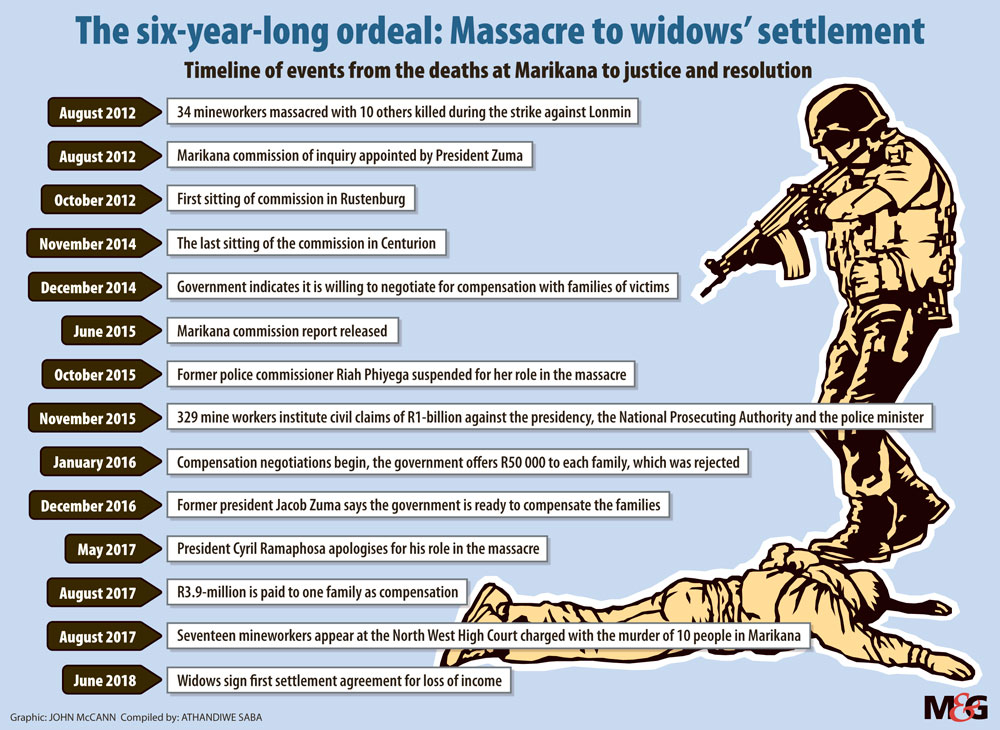(John McCann/M&G)
After six years the widows of mineworkers massacred by police in Marikana in 2012 have finally signed loss of support settlement agreements with the government.
Miners who were wounded and arrested are still in discussions about whether to accept offers from government, which are dated June 2018.
According to some of the widows, it was not the offer they were hoping for but they could no longer fight.
“We don’t want to comment about this right now because we have not been paid and there have been too many promises through the years. We have signed these letters but there has been no word as to when we’ll be paid, so there is nothing to comment about,” said one.
Khuselwa Dyantyi, of the Socio-Economic Rights Institute of South Africa, which represents the widows, confirmed that the widows had signed the offer in June. “We have reached an agreement with government about the loss of support claim. We are still negotiating about general damages and there isn’t much we can say about that.”
In March last year, the parliamentary police committee was told by the police’s Nashee Sewpersadh that a total of R1.1-billion had been offered as compensation for the Marikana massacre. Sewpersadh added that there were claims for loss of support, which was set at R179-million for 325 claimants. There were also claims for wrongful arrests, assault by police, malicious prosecutions and detentions.

It is the loss of support claims that have so far been settled. Each family’s was calculated using the mineworker’s payslip before he was gunned down and how many years he could have worked for.
“For example, for someone who was 60 years old and only had three to five years still to go, we couldn’t fight for loss of support which would be similar to that of a younger person. According to the law, the way it was calculated is satisfactory. The money for each family will be different,” said Dyantyi.
She added that the amounts, which would not be disclosed, have not been paid out yet and only certain people in the family would get the payout. “There will only be one amount for each family, which will be split between the children under 21, the wife and the mother. If you were a nuclear family that would work best but the miners supported 10 and more dependants.”
Lawyers for the wounded and arrested have also received offers, which the Mail & Guardian understands range from R100 000 to R500 000 for each miner. The M&G has seen four offers, three for R365 000 and one for R425 000.
The lawyers said they were still to meet to finalise their clients’ wishes.
Andries Nkome, a lawyer for the wounded and arrested miners, told the M&G that he was still negotiating with the government about how much the mineworkers would be paid for the injuries they sustained on August 16, and the days after when they were incarcerated.
“We have been offered R20 000 per day of incarceration, and my clients think this is reasonable,” he said. “But they are looking at how much money will be offered … for their injuries.
“The offer for the arrests is roughly R120-million. For injuries, we are looking for over R800-million and this is what we are still discussing,” Nkome said.
The push to finalise the claims comes four months after President Cyril Ramaphosa made a commitment that the compensation for the wounded and arrested miners and the families of those who died would be finalised.